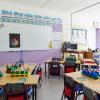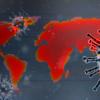
IIASA and the International Science Council (ISC) have established a partnership combining the strengths and expertise of the two organizations to define and design sustainability pathways, through a multi-stakeholder dialogue, that will enable a more equitable post-COVID world.
Although scientists have long been warning of the threat of a global pandemic, COVID-19 took the world by surprise. There have been immediate adverse health, social, and economic impacts including significant increases in people living below the poverty line and the potential for widespread famine. Progress that was being made in achieving the Sustainable Development Goals, now has the potential to fall behind.
Decision makers are understandably currently preoccupied with managing the immediate emergency brought on by COVID-19, but the crisis has exposed shortcomings and limitations in our responses to the many challenges that we face, not least the challenges arising from COVID-19. What is needed is a forum whereby new proposals and new pathways to achieve the goals of the 2030 Agenda, along with other international frameworks such as the Paris Agreement and the Sendai Framework can be designed and developed.
To this end, IIASA and the ISC will be activating their global network and creating a Consultative Science Platform.
The platform, to be launched in late May, will provide a global hub for consultation, deliberation, and collaboration among scientists, policymakers, and representatives from civil society around four key interconnected themes:
- Governance for Sustainability
- Strengthening Science Systems
- Resilient Food Systems
- Sustainable Energy
The platform will be supported by a high-level distinguished advisory board under the patronage of the 8th Secretary General of the United Nations and co-chair of the Ban Ki-moon Centre for Global Citizens, H.E. Ban Ki-moon. The platform will operate within the goals and objectives set out in existing global agreements such as the Paris Agreement, the 2030 Agenda, the Urban Health and Wellbeing Agenda, and the Sendai Framework.
“The only way to overcome the crisis we are currently experiencing as a result of the COVID-19 pandemic is by working together beyond borders in a spirit of solidarity, collaboration, and coordination. I am honored to be a patron of this platform as we collectively strive to provide science-based insights to policymakers and expand essential understanding, cooperation, and tolerance on the road to a more sustainable world for all global citizens – leaving no one behind,” said H.E. Ban Ki-moon.
The results from the platform's findings will be published in a report. This report will outline pathways towards a more sustainable recovery for a post-COVID world. The report will be released in the second half of 2020, providing an important contribution to the deliberations of UN General Assembly. The recommendations will be made widely available to the policymaking and research communities.
For more information on this initiative, please visit https://covid19.iiasa.ac.at/isc/
Related publications:
For a list of publications related to this initiative, please click here.
News

24 January 2023
How has the COVID-19 pandemic affected immigration?

24 November 2022
How COVID-19 school closures will affect inequalities in adult skills

23 November 2022
